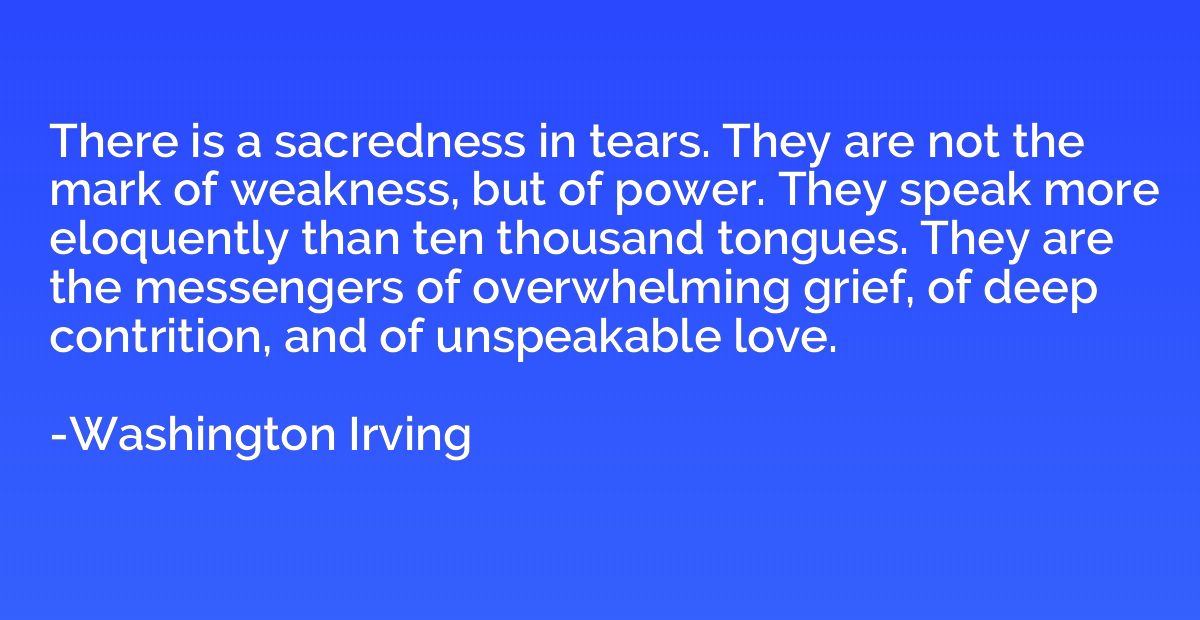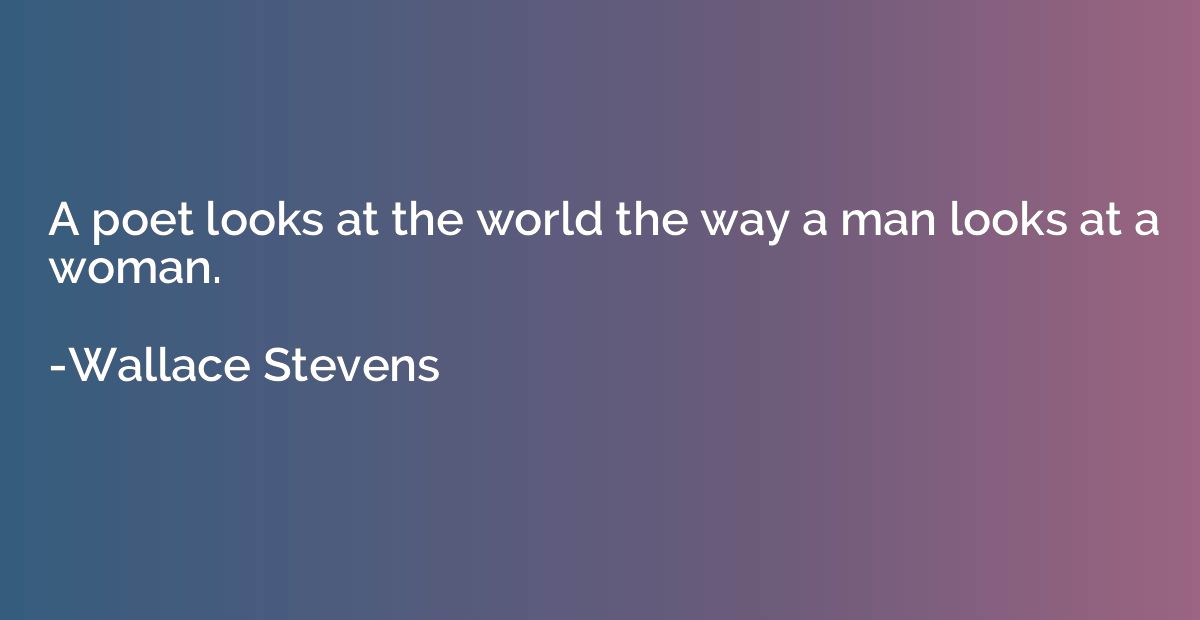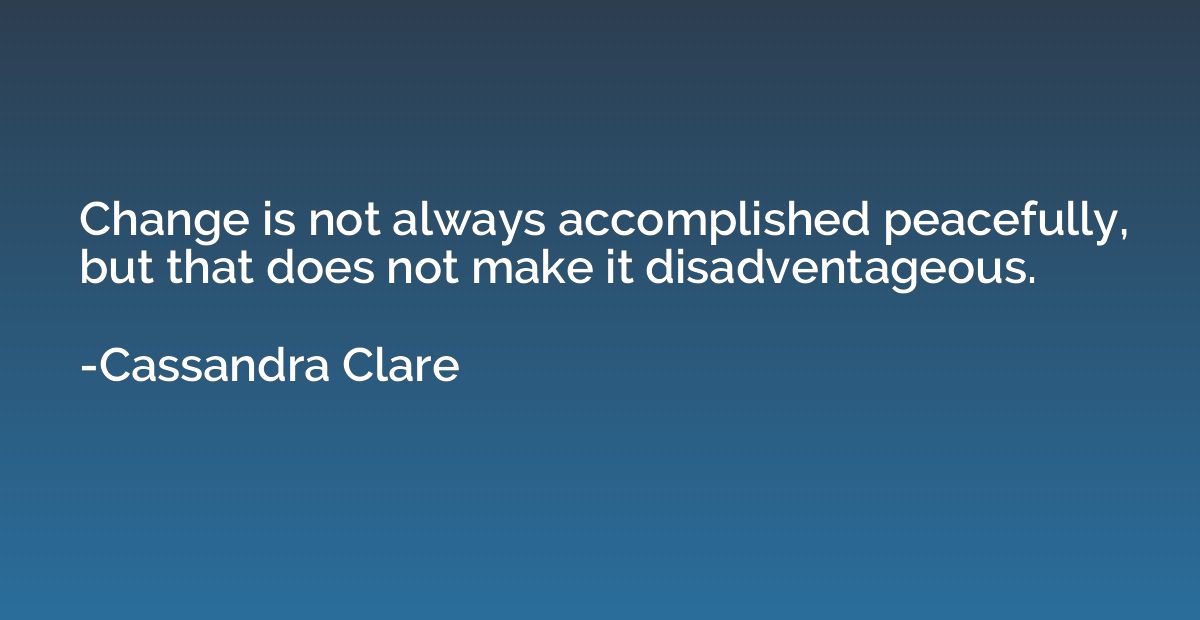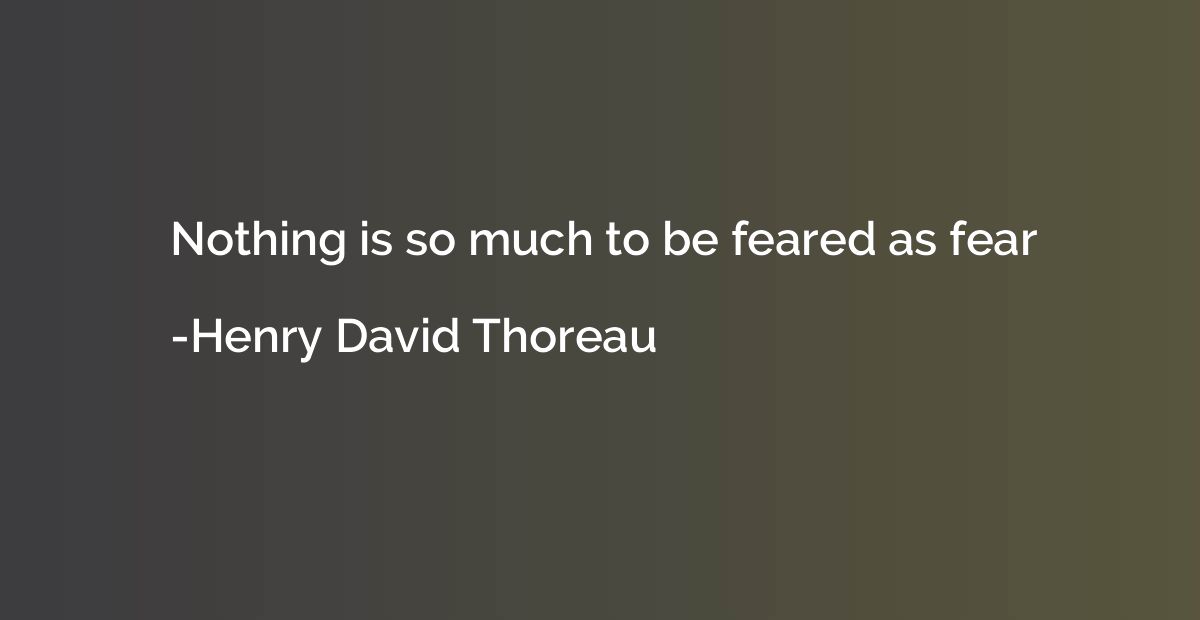Quote by Washington Irving
There is a sacredness in tears. They are not the mark of weakness, but of power. They speak more eloquently than ten thousand tongues. They are the messengers of overwhelming grief, of deep contrition, and of unspeakable love.

Summary
This quote highlights the significance and power of tears. It suggests that tears should not be seen as a sign of weakness, but rather as a manifestation of profound emotions. It implies that tears have a sacred quality, as they communicate intense grief, sincere remorse, and indescribable love far more effectively than words ever could. Ultimately, the quote invites us to recognize the strength and profound meaning behind our tears.














